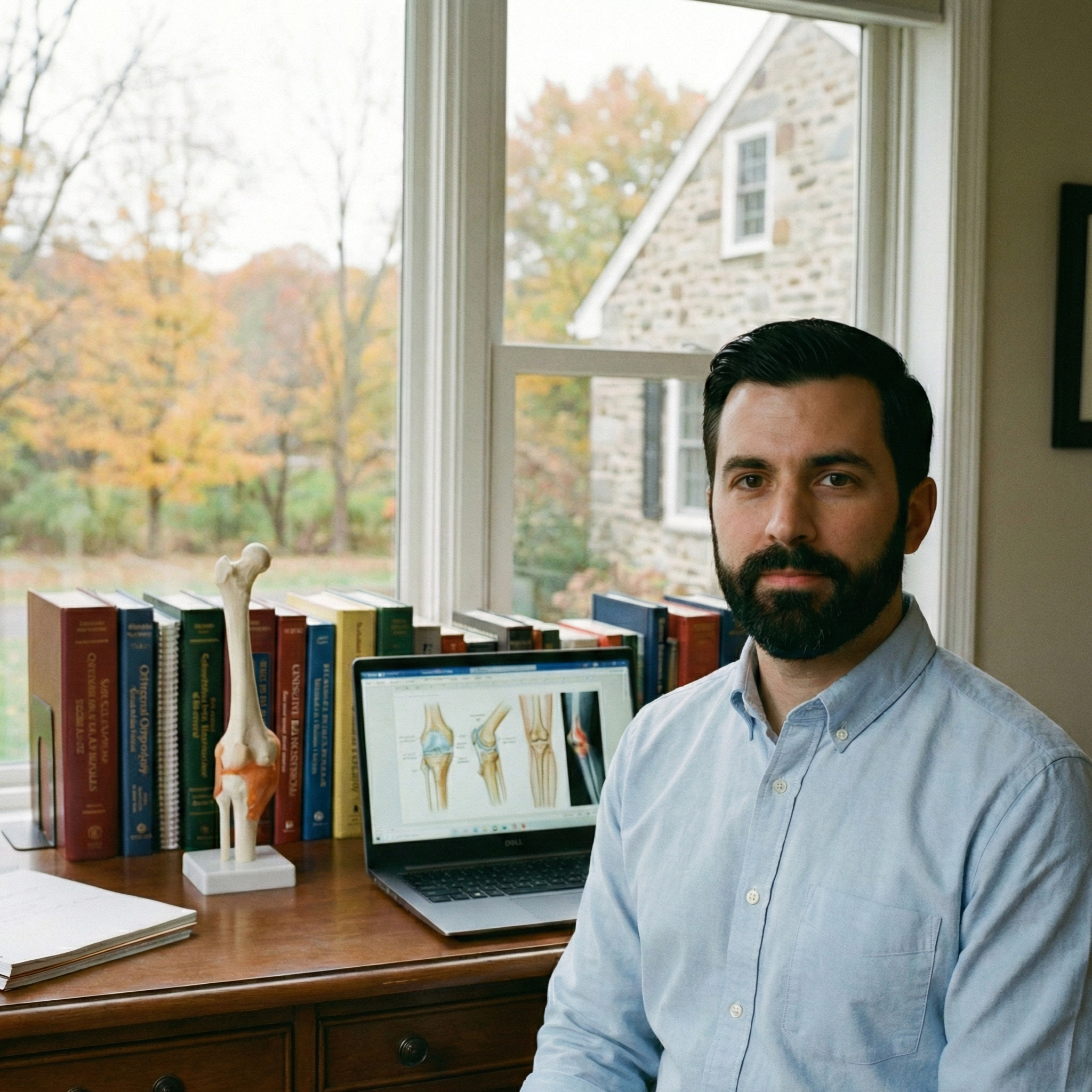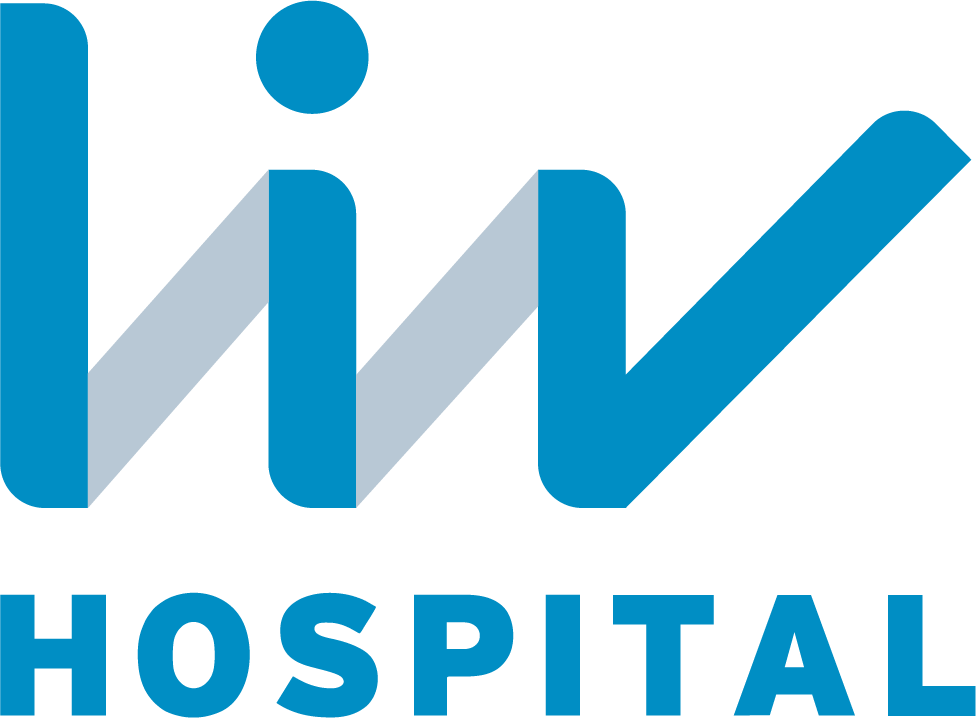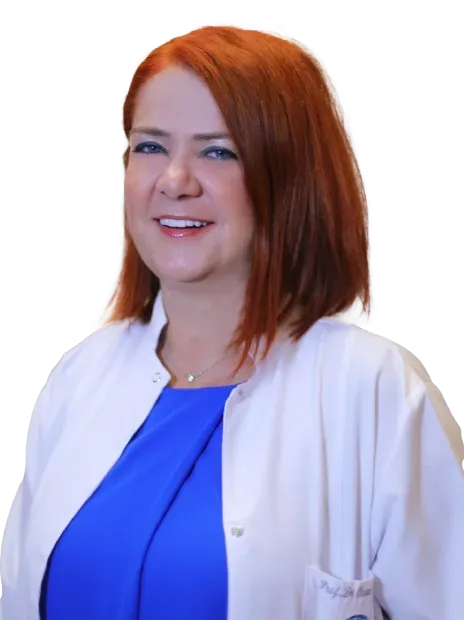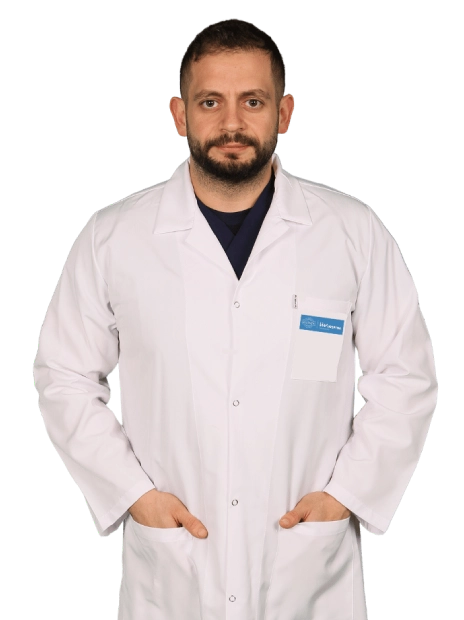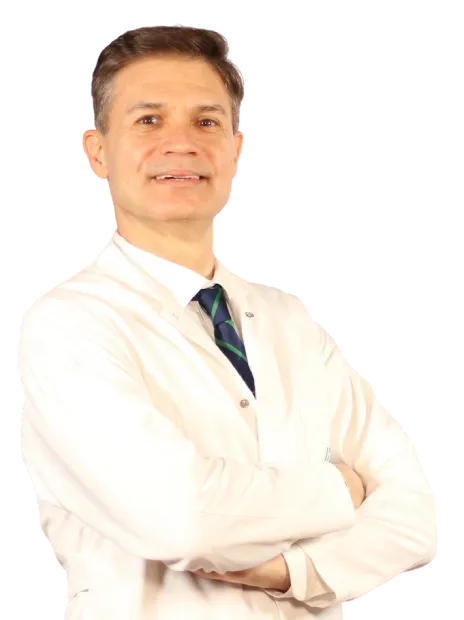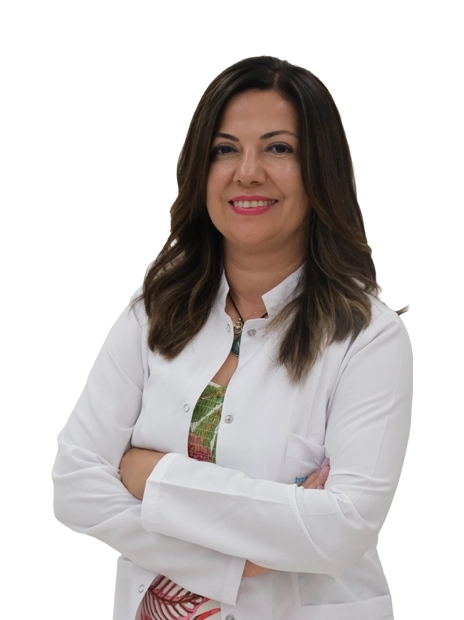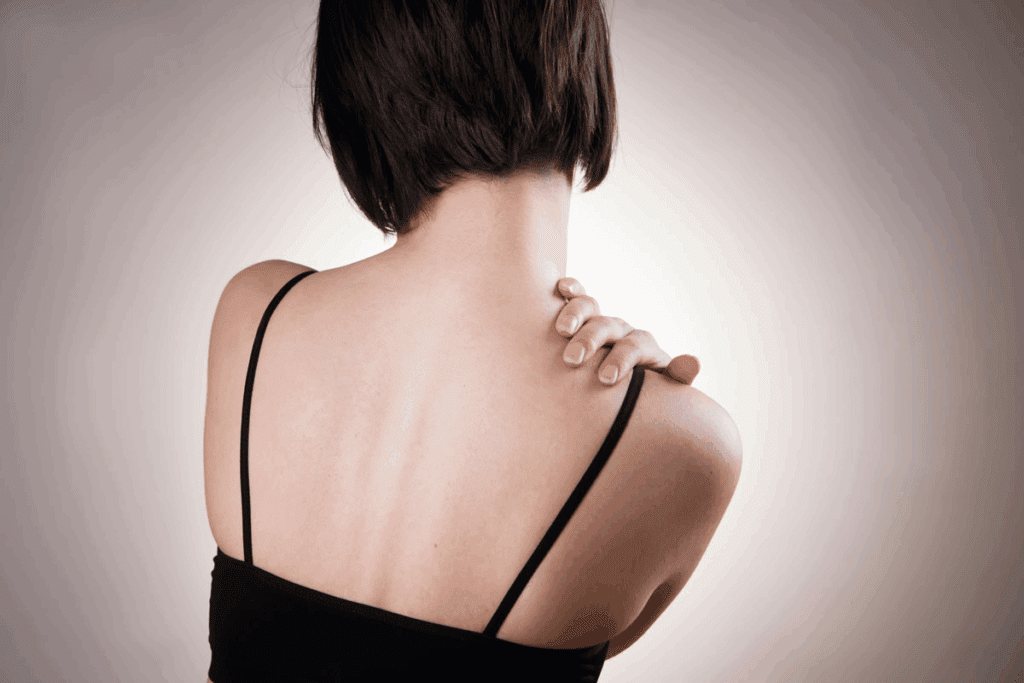
Did you know Princess Eugenie, a British royal, had scoliosis as a kid? Her story shows how important it is to know about this condition. Scoliosis is a spinal curve that bothers millions, leading to back pain.
We’ll dive into the pain of scoliosis, looking at what causes it and how it affects people. Knowing how much pain it can bring is key for those dealing with it. We aim to give you all the info you need to understand your condition better.
Key Takeaways
- Scoliosis is a spinal curvature that can cause significant back pain.
- The condition affects millions of people worldwide.
- Understanding scoliosis-related pain is key for managing it well.
- Many factors can affect how much discomfort someone feels.
- Getting the right care is vital for dealing with scoliosis pain.
Understanding Scoliosis: Definition and Types
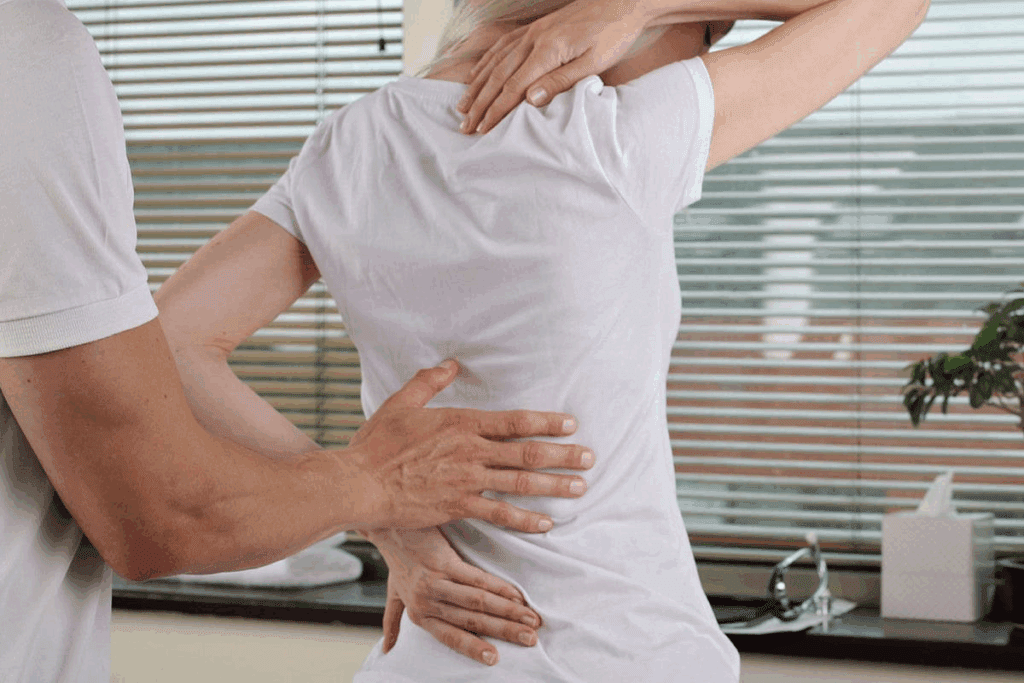
Scoliosis is more than just a spine curve. It’s a complex condition needing a deep understanding for right diagnosis and treatment. Knowing its definition, types, and who it affects is key to managing it well.
What is Scoliosis?
Scoliosis is when the spine curves abnormally to one side. Its severity and impact can vary a lot. The curve can cause discomfort, pain, and even breathing problems in severe cases. Knowing how much the spine curves and where it is important for treatment.
Common Types of Scoliosis
Scoliosis can be divided into types based on cause and severity. Here are the most common ones:
- Idiopathic Scoliosis: This is the most common, with no known cause. It often shows up in teens.
- Congenital Scoliosis: This is present at birth, due to spine issues during fetal development.
- Neuromuscular Scoliosis: Linked to diseases like cerebral palsy or muscular dystrophy.
- Degenerative Scoliosis: Happens in adults due to spine changes like arthritis or osteoporosis.
Prevalence and Demographics
Scoliosis can affect anyone, but it’s most seen in teens, just before puberty. About 2-3% of teens have scoliosis. While it can happen to anyone, some groups are more likely to get certain types. For example, girls are more likely to get idiopathic scoliosis and have more severe curves.
Knowing who gets scoliosis and how common it is helps catch it early. This way, doctors can give better care and support.
The Relationship Between Scoliosis and Pain
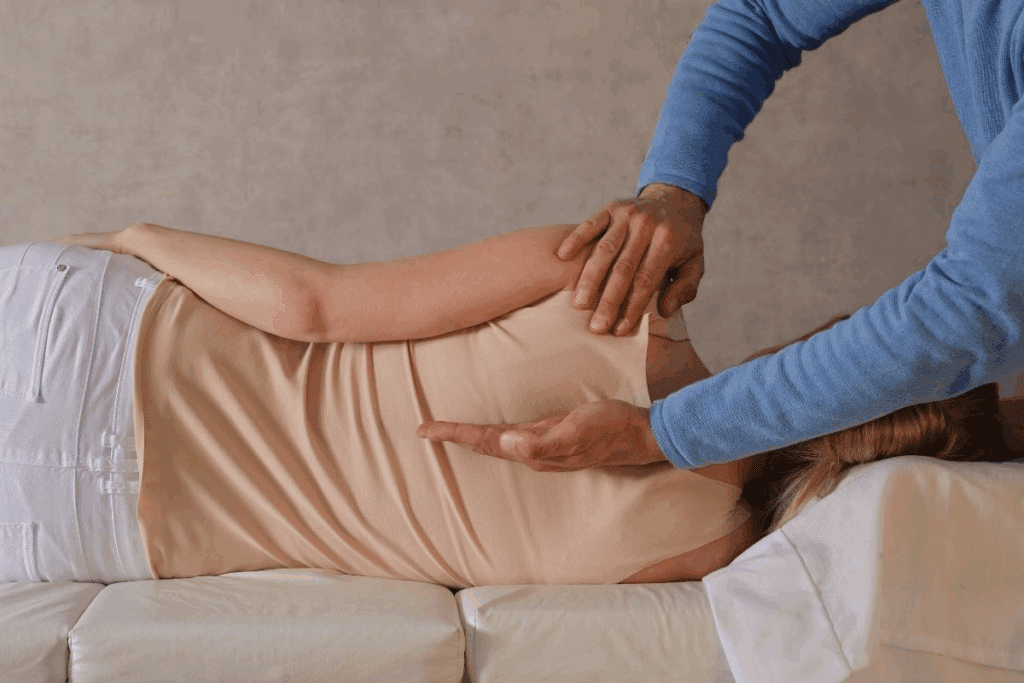
Scoliosis is often linked to pain, but the pain level varies a lot. We’ll look into how scoliosis and pain are connected. We’ll clear up common myths and talk about what affects pain levels.
Does Scoliosis Always Cause Pain?
Scoliosis doesn’t always cause pain. Studies show that pain levels can vary a lot among those with scoliosis. Sometimes, the spine’s curve can cause discomfort. But, many people with scoliosis can stay active without much pain.
Factors That Influence Pain Levels
Many things can affect how much pain someone with scoliosis feels. These include the severity of the spinal curvature, overall health, and age. For example, a more severe curve can put more strain on muscles and joints, leading to more pain. Lifestyle and activities also play a role.
Knowing these factors is key to managing scoliosis well. People with scoliosis might feel pain in their upper or lower back, or even in other areas. The question of can scoliosis cause pain in upper back is important, as the curve can strain upper back muscles.
Misconceptions About Scoliosis Pain
There are many wrong ideas about scoliosis pain. One myth is that scoliosis always causes a lot of pain. But, many people with scoliosis don’t have severe pain. Another myth is that pain is only in the back. But, scoliosis can cause pain in other places, like headaches, due to the abnormal curve and strain.
Knowing what scoliosis pain feels like can help manage it better. Pain from scoliosis can be a dull ache, sharp pains, or even pain that spreads. It depends on the person and their specific situation.
Scoliosis Pain: What Does It Feel Like?
Pain from scoliosis can feel different for everyone. Some people might not feel any pain, while others might have severe discomfort. It’s important for both patients and doctors to understand scoliosis pain to manage it well.
Common Pain Descriptions from Patients
People with scoliosis describe their pain in many ways. They might feel sharp pains or dull aches. Here are some common descriptions:
- Aching or burning sensations in the back
- Sharp pains or stabbing feelings, mainly after sitting or standing for a long time
- Muscle fatigue or strain, often after exercising
These descriptions show how scoliosis pain can be different for everyone. This means we need to treat each person differently.
Acute vs. Chronic Pain in Scoliosis
Scoliosis pain can be either acute or chronic. Acute pain is sharp and sudden, often from injury. Chronic pain lasts longer and can be from spinal deformity or degeneration.
Knowing if the pain is acute or chronic helps decide the best treatment.
How Pain Sensations Vary by Individual
Pain from scoliosis can differ a lot between people. It depends on the spinal curve, other health issues, and how sensitive someone is to pain. For example, someone with a mild curve might feel a lot of pain, while someone with a severe curve might not feel much.
We know that everyone’s experience with scoliosis pain is unique. So, we tailor our pain management to each person’s needs and situation.
How Painful is Scoliosis? Pain Severity Levels
Scoliosis pain can range from mild to severe. It’s important to know the different levels of pain and what they mean.
Mild to Moderate Pain Experiences
People with mild to moderate scoliosis might feel occasional back pain. This pain is usually a dull ache or stiffness. It often happens after sitting for a long time or at the end of the day.
Severe Pain Manifestations
Severe scoliosis can cause a lot of pain. This pain can be sharp, stabbing, and constant. It can make it hard to do everyday things. Effective pain management strategies are key to improving life quality.
Pain Progression Over Time
The pain from scoliosis can change over time. For some, the pain stays the same. For others, it gets worse as the spine curves more. Knowing what affects pain progression is important for treatment.
Quality of Life Impact
Scoliosis pain can greatly affect a person’s life. It can mess with sleep, mood, and physical activities. Comprehensive care that looks at both physical and emotional health is vital.
Areas Affected by Scoliosis Pain
Knowing where scoliosis pain hits is key to managing it well. Scoliosis makes the spine curve abnormally, causing pain in different spots.
Back Pain: The Primary Symptom
Back pain is the main sign of scoliosis. The spine’s curve strains the back muscles and joints, causing discomfort. How bad the pain is depends on the curve’s degree and the person’s health.
Effective scoliosis pain management often involves addressing this back pain through a combination of exercises, physical therapy, and sometimes, medical interventions.
Upper Back and Shoulder Pain
The spine’s curve in scoliosis also hits the upper back and shoulders. This curve changes the shoulders and upper back’s alignment, causing strain and pain.
Scoliosis exercises that strengthen the upper back and improve posture can help ease this pain.
Lower Back and Hip Pain
Scoliosis also affects the lower back and hips. The lumbar spine’s curve puts pressure on the lower back’s joints and muscles, causing pain. This pain can also spread to the hips.
In some cases, this pain can radiate to the hips, making it essential to consider scoliosis treatment options that address the root cause of the pain.
Radiating Pain Patterns
Scoliosis pain isn’t just in the back; it can spread to other areas. Sometimes, the pain goes down the legs or arms due to nerve issues.
Effective scoliosis pain relief means tackling these pain patterns with a detailed treatment plan.
| Area Affected | Common Pain Descriptions | Potential Relief Measures |
| Back | Aching, stiffness | Scoliosis exercises, physical therapy |
| Upper Back and Shoulders | Strain, discomfort | Posture correction, strengthening exercises |
| Lower Back and Hips | Pain, stiffness | Scoliosis treatment options, pain management |
| Radiating Pain | Numbness, tingling | Nerve decompression therapy, pain relief medications |
Secondary Pain Symptoms of Scoliosis
Scoliosis is complex, leading to more than just back pain. It can cause secondary pain symptoms that affect daily life. These symptoms can appear in different parts of the body, due to the spine’s curvature.
Headaches and Neck Pain
Scoliosis can cause headaches and neck pain. The spine’s abnormal curve leads to muscle tension. This tension can cause headaches and neck discomfort.
In some cases, neck pain can spread to the head. This makes headaches worse.
Chest Pain and Breathing Difficulties
Severe scoliosis can affect the chest. It can cause chest pain and breathing difficulties. The spine’s curve can press on the rib cage and lungs.
This makes breathing hard and causes chest pain or discomfort.
Nerve Compression Symptoms
Scoliosis can lead to nerve compression symptoms. The spinal canal or foramina can narrow. This compression causes pain, numbness, tingling, or weakness.
It affects different parts of the body, like the arms, legs, and lower back.
Tailbone (Coccyx) Pain
Some people with scoliosis have tailbone pain, or coccydynia. This pain comes from the spine’s curve. It puts extra stress on the coccyx.
This symptom is less common but can be very uncomfortable. It often needs special treatment.
It’s important to understand these secondary pain symptoms. This helps manage scoliosis better. Patients and doctors can then create treatment plans for both primary and secondary symptoms.
Factors That Influence Scoliosis Pain Severity
It’s important to know what affects scoliosis pain. Scoliosis is when the spine curves abnormally. This can cause different levels of pain for each person. Several factors can change how much pain someone feels.
Curve Severity and Location
The size and where the curve is can affect pain. People with bigger curves often feel more pain. The spot of the curve also matters. Some areas can hurt more because of how they press on nerves and other parts of the spine.
Age and Growth Factors
Age and how fast you grow are key in scoliosis pain. Kids growing fast can feel more pain. Adults might feel pain because of aging, like worn-out discs and joints.
Activity Levels and Lifestyle
How active you are and your lifestyle can change your pain. Exercise can make the muscles around the spine stronger, which can help. But sitting too much can make it worse. What you do every day and your job can also affect how much pain you feel.
Progression of the Condition
How scoliosis gets worse can also change pain levels. As the curve gets bigger, pain can increase. Keeping an eye on how it changes and acting early can help manage pain and stop it from getting worse.
Knowing these factors can help people with scoliosis manage their pain better. Good pain management often means a mix of exercise, changing your lifestyle, and sometimes medical help.
Can Mild Scoliosis Cause Pain?
Mild scoliosis, a minor spine curve, can cause a lot of discomfort for some. The link between scoliosis severity and pain is not always clear.
Pain Thresholds in Different Curve Measurements
Studies show that scoliosis curve degree doesn’t always match pain level. People with mild scoliosis, less than 20 degrees, can feel different levels of pain. This is because pain is very personal and can change based on many things.
Pain perception varies greatly. It can be affected by mood, health, and past pain experiences.
Why Even Slight Curves Can Be Painful
Even small scoliosis curves can hurt because of the extra stress on the spine and muscles. Muscle imbalance and postural adjustments can cause pain, even in mild cases.
- Muscle fatigue from compensating for the curvature
- Irritation of nerves due to abnormal spinal alignment
- Strain on ligaments and joints
When to Be Concerned About Pain with Mild Scoliosis
It’s important to watch pain levels and how it feels, even with mild scoliosis. If pain keeps coming back, gets worse, or stops you from doing daily things, see a doctor. They can help figure out what to do next.
Knowing why pain happens in mild scoliosis helps manage it better. By tackling the root causes and using the right treatments, people can feel better and live better lives.
Diagnosing the Source of Scoliosis Pain
Diagnosing scoliosis pain requires a mix of clinical checks and advanced imaging. Getting the diagnosis right is key for managing pain and planning treatment.
Physical Examination Techniques
A detailed physical check is the first step in finding scoliosis pain’s cause. We look at the patient’s posture, how flexible their spine is, and where they feel pain. The Adam’s Forward Bend Test is often used to spot spinal curves and twists.
We also check the patient’s nerves, looking for signs like numbness, tingling, or weakness in their limbs.
Imaging Studies for Pain Assessment
Imaging tests are vital for diagnosing scoliosis and figuring out pain. X-rays are often used to see how curved the spine is. Sometimes, we suggest MRI or CT scans to look at soft tissues and nerves.
These tests help us find out why the pain is happening, like muscle strain, nerve pressure, or wear and tear.
| Imaging Study | Purpose | Benefits |
| X-ray | Evaluate spinal curvature | Quick, widely available |
| MRI | Assess soft tissue and nerve involvement | Detailed soft tissue imaging |
| CT Scan | Detailed bone structure assessment | High-resolution bone imaging |
Distinguishing Scoliosis Pain from Other Conditions
It’s important to tell scoliosis pain from other symptoms like degenerative disc disease, spinal stenosis, or muscle strain. A detailed check helps us find the real cause of pain and plan the right treatment.
For example, scoliosis pain relief exercises might be part of the treatment. We might also use scoliosis pain medication or physical therapy. Sometimes, we need to tackle scoliosis neck pain too.
By using physical checks, imaging, and a full patient history, we can pinpoint scoliosis pain’s source. Then, we create a treatment plan just for them.
Scoliosis Pain Management Strategies
Managing scoliosis pain needs a mix of strategies. Scoliosis pain can really affect someone’s life. So, it’s important to look at different ways to ease the pain.
Non-Prescription Pain Relief Options
For many with scoliosis, non-prescription pain relief is a good start. Over-the-counter (OTC) drugs like acetaminophen or ibuprofen can help with mild to moderate pain. Also, using heat or cold packs on the painful area can offer quick relief. Always talk to a doctor before trying new medicines or treatments.
Prescription Medications for Scoliosis Pain
If OTC drugs don’t work, prescription meds might be needed. These can include stronger pain relievers or muscle relaxants. It’s key to work with a doctor to find the right medicine and dosage. They can also watch for any side effects.
When to Consider Interventional Pain Management
In some cases, interventional pain management might be suggested. This includes things like nerve blocks or spinal injections. These are usually considered when other treatments haven’t helped enough. It’s vital to talk about the risks and benefits with a healthcare expert.
Holistic Approaches to Pain Control
Holistic methods can also help manage scoliosis pain. Physical therapy, acupuncture, and chiropractic care can lessen pain and boost well-being. Yoga and meditation can also help by reducing stress and improving flexibility. We suggest trying these as part of a full pain management plan.
By trying different scoliosis pain management strategies, people can find relief and live better lives. We’re here to help patients on their journey to managing pain and improving their overall health.
Exercises and Physical Therapy for Scoliosis Pain Relief
Exercises and physical therapy are key to managing scoliosis pain. They strengthen muscles, improve flexibility, and correct posture. This can greatly reduce discomfort and enhance life quality.
Core Strengthening Exercises
Strengthening the core is vital for scoliosis management. Strong core muscles stabilize the spine, easing back strain and pain. Effective core exercises include:
- Planks: Holding a plank strengthens the abdominal and back muscles.
- Bridges: This targets the glutes and lower back, promoting spinal stability.
- Bird Dog: It improves balance and strengthens the core and back muscles.
A scoliosis specialist notes, “Core strengthening exercises are essential for managing scoliosis pain. They help maintain a stable spine and reduce curvature risk.” Regular practice can significantly reduce pain.
Stretching Routines for Pain Reduction
Stretching is also critical for scoliosis pain management. It boosts flexibility, reduces muscle tension, and eases pain. Recommended stretches include:
- Cat-Cow Stretch: This improves spinal flexibility and reduces stiffness.
- Chest Stretch: It improves posture and reduces discomfort.
- Hamstring Stretch: Stretching tight hamstrings can relieve scoliosis pain.
A study in a leading orthopedic journal found that regular stretching reduces pain and improves spinal flexibility in patients.
Specialized Scoliosis-Specific Exercise Programs
There are specialized exercise programs for scoliosis, like the Schroth Method. These programs address scoliosis needs, focusing on:
- Correcting posture and spinal alignment.
- Strengthening muscles that support the spine.
- Improving flexibility and reducing pain.
A patient who used the Schroth Method said, “The exercises reduced my pain and improved my posture and confidence.”
Physical Therapy Modalities
Physical therapy for scoliosis pain relief combines exercises with modalities like heat or cold therapy, electrical stimulation, and manual therapy. These can help:
| Modality | Benefits |
| Heat Therapy | Relaxes muscles, reduces pain and stiffness |
| Cold Therapy | Reduces inflammation, numbs pain |
| Electrical Stimulation | Stimulates muscle contractions, improves circulation |
Physical therapists create personalized treatment plans for each patient’s needs and goals.
Surgical Treatment and Associated Pain
It’s important to know about scoliosis surgery and its pain. This treatment is for severe spine curvatures or when other methods don’t work.
Pain Associated with Scoliosis Surgery
Scoliosis surgery, or spinal fusion, fixes the spine’s curve with rods and screws. Pain levels can differ a lot among people.
The surgery is painless because it’s done under anesthesia. But, after surgery, patients often feel pain. This pain comes from the incision and fixing the spine.
Post-Surgical Pain Management
Managing pain after surgery is key. We use medicines and therapies to help. This includes:
- Opioid medications for severe pain
- Non-opioid pain relievers for ongoing pain
- Muscle relaxants to reduce muscle spasms
- Physical therapy to improve mobility and strength
We aim to lessen pain and help patients recover well.
Recovery Timeline and Pain Expectations
Recovery times vary, but most see pain lessen in weeks. It can take months to fully recover and do normal activities.
| Recovery Stage | Typical Pain Level | Expected Duration |
| Immediate Post-Surgery | High | 1-2 weeks |
| Early Recovery | Moderate | 2-6 weeks |
| Late Recovery | Mild | 6 weeks – 3 months |
When Surgery is Recommended for Pain Relief
Surgery is for severe scoliosis that other treatments can’t fix. The choice to have surgery depends on the curve’s degree, health, and life quality impact.
Knowing about surgery, pain, and recovery helps patients decide on their care.
Conclusion
Scoliosis pain is complex and affects people differently. It’s important to understand its definition, types, and how to manage it. This knowledge is key to effective care.
We’ve looked at many ways to manage scoliosis pain. This includes non-prescription options, prescription meds, and interventional techniques. Exercises and physical therapy are also helpful.
Knowing what affects scoliosis pain and the treatment options available helps individuals manage their condition. Our aim is to give readers the knowledge to deal with their scoliosis diagnosis. We want to help them find relief from scoliosis pain.
FAQ
What is scoliosis, and how does it affect the body?
Scoliosis is a condition where the spine curves abnormally. It can happen to anyone at any age. It can lead to back pain, uneven shoulders, and breathing problems.
Does scoliosis always cause pain?
No, not everyone with scoliosis feels pain. The pain level varies. It depends on the curve’s severity, age, and health.
What are the common types of scoliosis?
There are several types of scoliosis. Idiopathic scoliosis is the most common. It happens without a known reason.
Can mild scoliosis cause pain?
Yes, even mild scoliosis can hurt. Pain levels differ from person to person. Some feel pain even with a small curve.
How is scoliosis pain typically described?
People describe scoliosis pain in many ways. It can feel like aching, sharp, or stabbing. They might also feel tired, stiff, or uncomfortable in their back, shoulders, or hips.
What factors influence the severity of scoliosis pain?
Several things can affect how much pain scoliosis causes. These include the curve’s degree and location, age, growth, activity levels, and how the condition progresses.
How is scoliosis pain diagnosed?
Doctors use physical exams, X-rays, or MRI scans to diagnose scoliosis pain. They also look at a patient’s medical history to rule out other conditions.
What are the management strategies for scoliosis pain?
Managing scoliosis pain involves several steps. These include over-the-counter pain relievers, prescription drugs, interventional treatments, and holistic methods like physical therapy and exercises.
Can exercises and physical therapy help relieve scoliosis pain?
Yes, exercises and physical therapy are key in managing scoliosis pain. They help strengthen the core, stretch, and improve overall health and comfort.
How painful is scoliosis surgery?
Scoliosis surgery can be painful after, but doctors manage this with medication. The pain level varies among individuals.
When is surgery recommended for scoliosis pain relief?
Surgery is considered when the curve is severe and other treatments fail. The decision to have surgery depends on individual factors and health.
References
- Jackson, R. P., Simmons, E. H., & Stripinis, D. (1983). Incidence and severity of back pain in adult idiopathic scoliosis. Spine (Phila Pa 1976), 8(7), 749-756. https://pubmed.ncbi.nlm.nih.gov/6229884/


